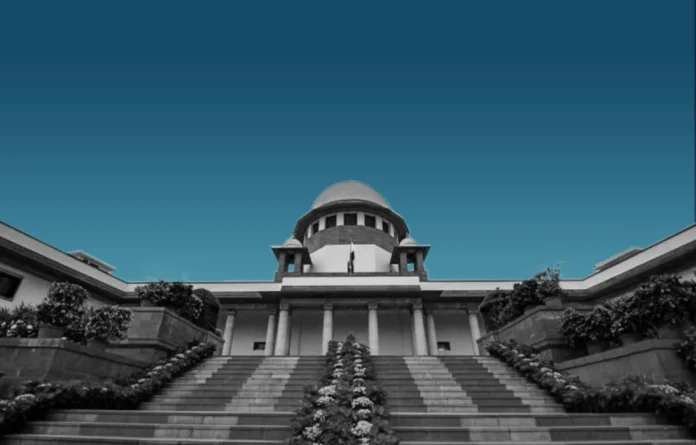The Supreme Court would consider on November 25, whether to relax the Stage IV measures currently implemented in the Delhi-National Capital Region under the Graded Response Action Plan (GRAP) to combat the pollution levels in Delhi and surrounding areas.
Calling the Stage IV GRAP measures as drastic, the Bench of Justice Abhay S Oka and Justice Augustine George Masih said on Friday that it would consider the request made by parents of certain school children on the next date of hearing.
In its previous hearing, the Apex Court, while hearing a case related to the rising levels of pollution in Delhi, had specifically examined the action taken by authorities across Punjab, Haryana and Uttar Pradesh to curb the stubble burning incidents.
The Apex Court had called for strict implementation of GRAP Stage IV measures in Delhi and surrounding areas to improve the degrading air quality of the national capital. It had also directed the States of Punjab, Haryana and Uttar Pradesh to close physical classes in all schools coming under the affected areas and conduct online classes.
A group of eight parents moved the Apex Court against this order, claiming that not everyone had technological systems available at home for virtual classes.
Appearing for the group, Senior Advocate Menaka Guruswamy today submitted that the assumption behind school closure was that the air inside houses was cleaner.
The Counsel sought help from the Court on the grounds that many parents, including drivers and other such people, did not have the technological system to join the school virtually.
The Bench sought suggestions from Guruswamy to redress the grievance of working parents.
She responded that the Court may allow those parents who wanted to send their students to school. The poor in this country could send their children to nearby schools.
Additional Solicitor General (ASG) Archana Dave submitted that while the State had full sympathy for the concerns raised, the children would be equally affected with the GRAP-IV measures in place.
Senior Advocate Gopal Sankaranarayanan raised the the issue of buses being used to ferry children to the schools. Guruswamy replied that poor parents in this country did not send their children to school via buses. They sent them to neighborhood schools.
The application moved by the parents argued that school closure was not a panacea for the pollution woes of Delhi-NCR, noting that school closure interfered with the children’s right to education.
The petition claimed that online school was meaningless for kids who did not have access to such devices, which were easily accessible by a majority of children in Delhi, such as first generation learners. Even those having access to such devices, online classes for primary section could not compensate for the skills imparted in a collegial environment of the classroom.
The parents sought directions to the government to prescribe a set of clear advisories to schools, which were followed as soon as the AQI levels rose beyond the prescribed safe limits.
Since pollution levels were highest in the morning, the schools should be directed not to start functioning before 09:00 hrs. This arrangement could be in place only for the months of November, December and January, it added.
The petition further demanded that the academic calendar should be re-organised in such a way that schools were closed for two weeks during the peak period of pollution. This period should be adjusted from other vacations so that overall academic days remained the same.
The governments could use public funds to provide N95 masks to children for use in schools during the pollution season, it added.
The parents further said that in case the AQI levels remained high beyond a certain time period, schools could endeavour to broadcast classes for children suffering from chronic respiratory issues.
The petition stressed that on the need for long-term solutions, instead of resorting to blanket closure of educational institutions, to deal with air pollution in Delhi and surrounding areas.


